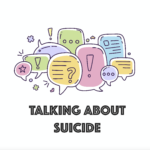
KCL Masters student Daniella Mousicos summarises a qualitative study exploring whether asylum seekers and refugees are provided with appropriate mental health support in Brighton and Hove.
[read the full story...]
KCL Masters student Daniella Mousicos summarises a qualitative study exploring whether asylum seekers and refugees are provided with appropriate mental health support in Brighton and Hove.
[read the full story...]
Wouter van Ballegooijen summarises a review of the ‘best apps’ for mental health, which finds very little support for people experiencing a mental health crisis.
[read the full story...]
Douglas Badenoch helps us prepare for another CAMHS Around the Campfire session by exploring a recent cluster RCT on early language screening and intervention using the Nuffield Early Language Intervention.
Follow #CAMHScampfire on Twitter at 5pm BST on Monday 13th September for an online journal club discussing this paper. Or sign up now to join the free webinar hosted by ACAMH.
[read the full story...]
Angharad de Cates reviews a recent study which examined international definitions of English-language terms for suicidal and self-harm behaviours.
[read the full story...]
Francesca Bentivegna summarises a recent review which suggests that schizophrenia, “personality disorders” and psychopathy may be linked to reading skills deficits in some people.
[read the full story...]
In her debut blog, Charlotte Huggett summarises a recent online survey which explored views on the language we should use to discuss suicide. The study concludes that the most acceptable phrases are currently: “attempted suicide”, “took their own life”, “died by suicide” and “ended their life”.
[read the full story...]
Julia Badger critiques and summarises a recent randomised controlled trial testing the Let’s Talk intervention for improving children’s language development.
[read the full story...]
Muzaffer Kaser writes his debut elf blog on a recent study, which looks at evolutionary modifications in human brain connectivity associated with schizophrenia.
[read the full story...]
Emmeline Lagunes Cordoba and Derek Tracy explore a case control study that looks at cognitive change in people with schizophrenia and other psychoses in the decade following the first episode.
[read the full story...]
Does a mouse think like a human? Does a cat? Does a macaque monkey? These are fascinating questions to ask on a philosophical level, but they are also of immense practical importance. Current regulations on drug development mean that animal research plays a huge role in deciding what substances might be safe and beneficial to humans. [read the full story…]